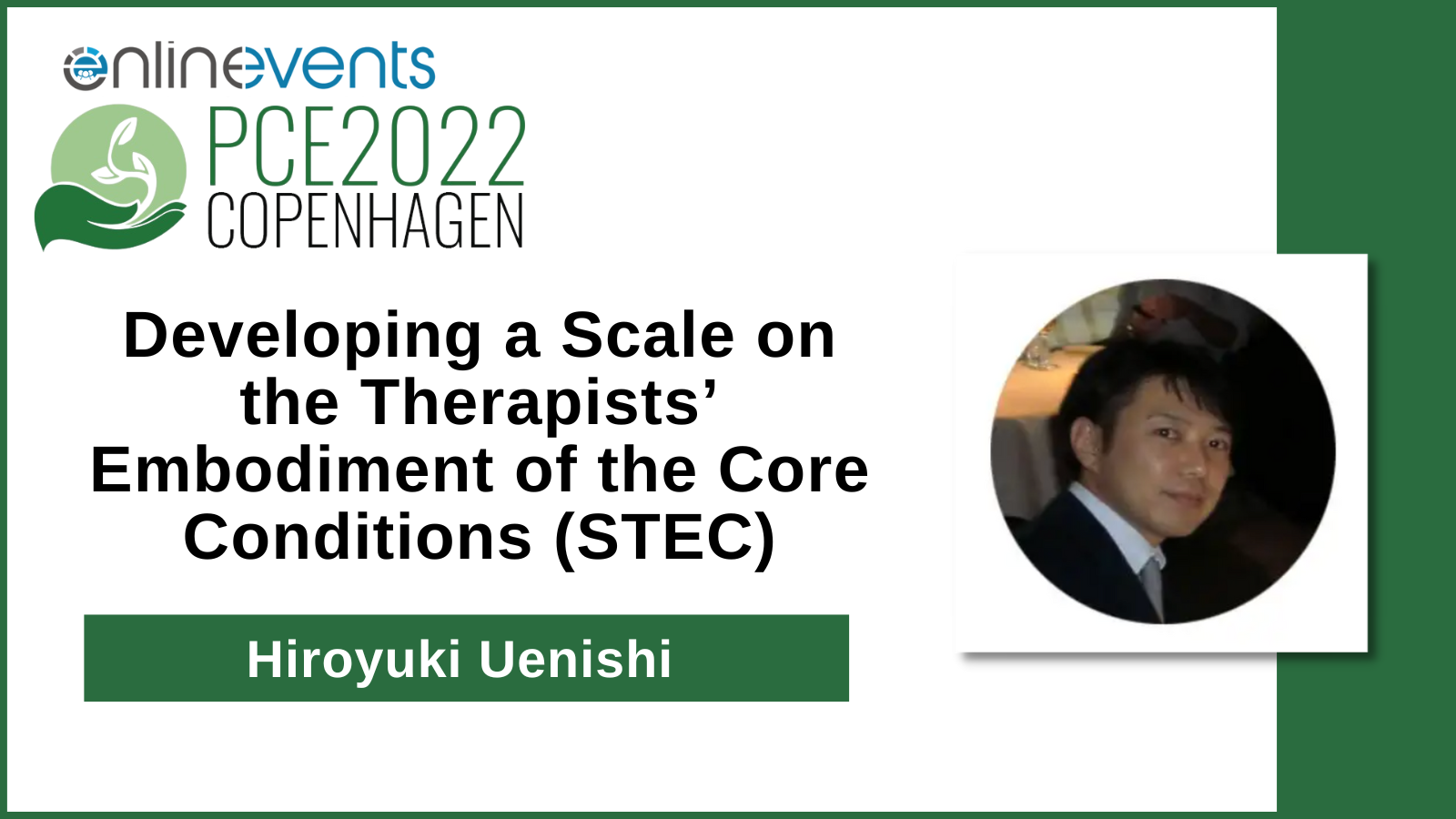Motivation: To explore how much the therapist embodies the core conditions of Person-Centered Therapy (PCT) by using objective indicators, and to clarify its experiential components.
Problem: To explore factors that define PCT, develop a scale on therapists’ embodiment of the core conditions (STEC), and test its construct validity.
Methodology:
1) Participants: 101 clinical psychologists or their trainees, 55 females and 46 males. The mean age was 36.0 ± 10.7 years.
2) Method: google forms was used for online research.
3) Questionnaires: 1) face items: gender, age, orientation, years of clinical experience. 2) STEC : 33 items selected from the Barrett-Lennard Relationship Inventory (BLRI) modified for the therapist-client setting. The six-point scale was used from “I don’t think so at all” to “I strongly think so” for both. 3) Items based on the principles of PCT by Sanders. The same answer method was used as STEC. 4) SEAS 2000: Revised edition of self-actualization scale by Sakanaka consists of four factors: “self-acceptance”, “Release from adherence”, “self-reliance” and “genuineness”. The same answer method was used as STEC.
4) Statistical analysis was performed with IBM SPSS ver.27 and R version 4.0.3.
Results: Participant’s orientation was either PCT, Experiential, Psychoanalysis, CBT, Integrative, or “the others”. Through the factor analysis of STEC, four factors were extracted: “unconditional positive regard”, “empathic understanding”, “congruence 1: awareness of own experience” and “congruence 2: open communication of own experience”. Positive correlations were found between STEC and SEAS 2000: “congruence 2” and “self-acceptance” (r=.32, p<.001), “congruence 2” and “genuineness” (r=.24, p<.05), “unconditional positive regard” and “self-acceptance” (r=.20, p<.05). As for the differences among orientations in STEC, Experiential showed significantly higher on “empathic understanding” than psychoanalysis(p<.05) and “Others”(p<.05), but no other significant differences were found.
Implications: Of the four extracted factors, “unconditional positive regard” and “empathic understanding” were almost the same as in BLRI. However, congruence showed up as two factors, “awareness of own experience” and “open communication of own experience”. It suggests that it is useful to be aware of not only the inner aspect but also communicative aspect of congruence when practising and training PCT.
Course Content
Organisation
The World Association for Person-Centered & Experiential Psychotherapy & Counseling had its genesis in the mid 1990s after person-centred theoreticians and practitioners felt there was not an adequate representation of the PCA at the First World Conference on Psychotherapy (WCP) in July 1996.
Nearly 25 years since it was officially formed, our desire remains to be an identifiable, international organization serving as a world-wide forum.
For details of the upcoming PCE 2024 Conference please visit pce2024.com
Presenter

Associate professor at Osaka Ohtani University, Certified Clinical psychologist Certified Public Psychologist.



